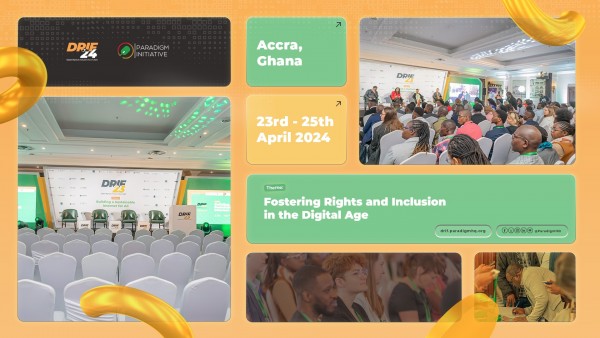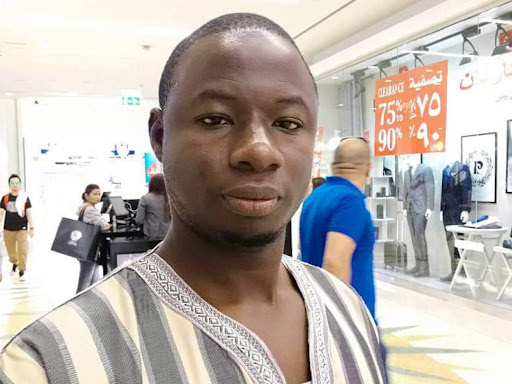H.E. John Kufuor
President of the Republic of Ghana
The Castle
P.O. Box 1627
Accra
Ghana
Fax: +233 21 664 089
H.E. Ruud Lubbers
High Commissioner for Refugees
United Nations High Commission for Refugees
Case Postale 2500
CH-1211 Geneve 2 Depot
Switzerland
Fax: +4122-739 73 12
Vienna, 13 December 2001
Dear Mr. President,
Dear Mr. Commissioner,
The International Press Institute (IPI), the global network of editors, leading journalists and media executives, is deeply concerned about the plight of staff from the Liberian New Democrat newspaper who are currently seeking refugee status in Ghana.
According to the information provided to IPI, the following staff members are still awaiting a decision as to their refugee status more than one year after entering the pre-screening process, Abass Dulleh, court reporter, Victor Harris, business manager, Charles Jackson, managing editor, Joseph Jubor, maintenance supervisor, David Korvah, production manager, LeRoy S. Nyan, layout editor and reporter, and Hisenburg Q. Togba, photojournalist. Aside from the above-listed employees, a number of female members of staff were forced to flee to Guinea.
Upon leaving Liberia on 4 – 5 September 2000, the media workers immediately applied for refugee status in Ghana. Since 19 September 2000, the media workers have undergone the UNHCR’s pre-screening process but have been told to wait for a decision by the Ghana Refugee Board (GRB). In early November 2001, a UNHCR protection officer informed the media workers that the GRB had been dissolved and that they would have to wait for its reconstitution before any final decision could be made. Apparently, the GRB has met only once this year, in May.
With regard to the grindingly slow application process, IPI believes that there are political considerations at play. Under the Ghanaian Refugee Law 1992, the GRB is composed of 12 members with only one representative chosen by the UNHCR. Indeed, this member has no powers and sits purely as an observer. Therefore, the GRB is almost entirely drawn from institutions within Ghana. Furthermore, on the basis of evidence provided to IPI, it would appear that the government of Ghana has withdrawn its support for the UNHCR programme because of the lack of international assistance for Liberian refugees. As a result, a number of applicants, including the media employees, now find themselves in difficult circumstances.
One of the severest problems is the possibility of retribution by the Liberian secret services.
In a letter received by one of the media employees on 15 January, from a contact in Monrovia, Liberia, notice was given of a plan to pursue perceived enemies outside of Liberia. The letter stated that the Liberian authorities were creating a regional network to maintain surveillance on politicians, journalists and human rights activists who had fled the country. In order to guarantee their safety, the letter went on to advise that all Liberians should stay away from public places, particularly, the Liberian refugee camp. According to the letter the refugee camp is the headquarters of the network.
The contents of the letter is supported by the arrival in May of a team of operatives to form the network. Key members of the Liberian network allegedly included Colonel Benjamin Yeaten, Director of the Special Security Services, and J. Apollo Swen, a former war general who used to oppose the Taylor regime but is now a supporter. Another man, who was once the commander of President Charles Taylor’s rebel forces, has also been seen and is allegedly involved in the network. Without refugee status and the protection of the UNCHR the media employees are fearful that they may be threatened or spirited back to Liberia.
A fierce critic of the worst excesses of President Charles Taylor’s regime, the New Democrat was declared by the government to be “Enemy Number One” in 1998. Nearly one year later, on 8 June 1999, armed police arrested, among others, Harris, Jackson and Nyan for writing a negative article. Finally, in June 2000, President Charles Taylor declared that he would “get ferocious” with the staff. The statement caused wide-spread panic among the New Democrat staff and precipitated the flight to Ghana.
Concerning the situation of the media employees, IPI would call on both the government of Ghana and the UNHCR to do everything possible to speed-up the refugee process and to ensure that they receive adequate protection.
Under the Ghana Refugee Law 1992, section 6 (1), “The [GRB] shall meet at such times and at such places as the Chairman may determine but shall meet at least once every two months.” IPI notes that the GRB has failed to meet within the time allotted to it by the regulations and it is therefore in breach. IPI calls upon the government of Ghana to rectify this highly irregular situation immediately and to reconstitute the body.
IPI would also remind the Ghanaian government that Ghana has made a specific commitment to freedom of the press and freedom of expression. This year saw the removal of Ghana’s criminal defamation laws and we would invite the government to view the protection of these journalists as a continuation of the good work already being done in Ghana.
Furthermore, we would ask that the UNHCR use its good offices to highlight the case of the media employees and to use every possible opportunity to bring it to the attention of the Ghanaian authorities. IPI fully realises that it is often the poor countries who retain ultimate responsibility for care and assistance to refugees and we would ask the UNHCR to do everything possible to help the Ghanaian government in this matter.
We thank you for your attention.
Johann P. Fritz
Director


